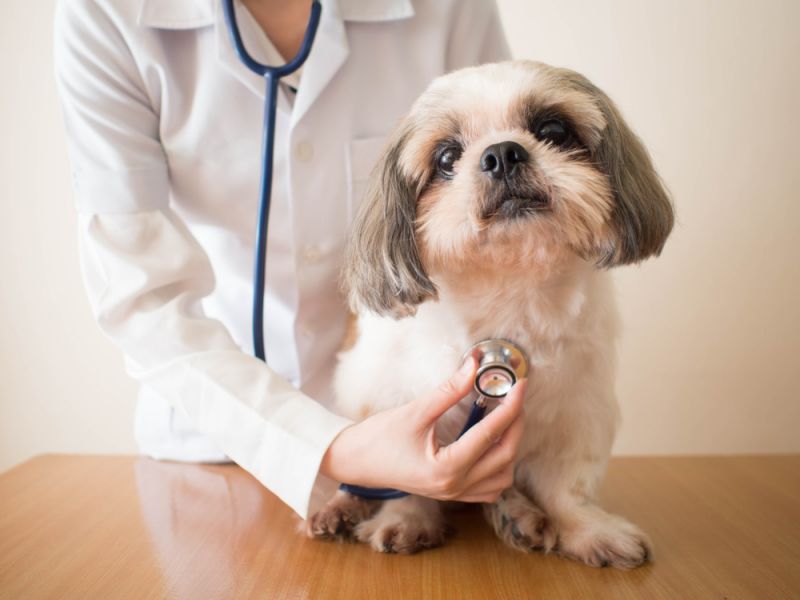
Heart disease is a more common problem for pets than you probably realize. According to the American Veterinary Medical Association (AVMA), approximately 10% of all dogs in the U.S. have heart disease, and heart disease affects 1 of every 10 cats.
Pets get heart disease just like we do. Similar to people, heart disease can be divided into types that are congenital, or occur close to birth, and types that are acquired, occurring later in life. Many acquired heart diseases are passed on through generations. Some heart conditions are more common for cats, and others affect small dogs, large dogs, or occur in certain breeds of dogs and cats.
Heartworm disease is another common cause of heart problems in pets. The serious and potentially fatal disease is caused by heartworms, foot-long worms that live in the blood vessels outside the heart which can sometimes extend into the heart chambers.. Pets with heartworms develop permanent scarring and inflammation in their lung tissue and blood vessels, which frequently leads to heart failure if not treated early.
Signs and Symptoms of Heart Disease
Dogs and cats with heart disease may demonstrate a wide range of symptoms including difficulty breathing, coughing, exercise exhaustion, weakness, open-mouth breathing, collapse, reluctance to move, anorexia, vomiting, weight loss, and more.
While some pets with heart issues show no visible signs of illness, the disease process can still be very advanced. During a comprehensive exam, your veterinarian will listen to your pet’s heart and lungs with a stethoscope, evaluate your pet’s heart rate, and check the color of your pet’s gums.
If your veterinarian finds any abnormalities, including heart murmur, arrhythmia, evidence of a clot, weakened pulse, or pale gum color, further diagnostic testing will be recommended. Testing may include x-rays of the chest, heartworm testing, recording of the heart’s electrical activity (electrocardiogram), ultrasound images of the heart and large blood vessels (echocardiogram), cardiac catheterization, and blood tests for heart disease markers.
Treatment Options
Heart disease treatment options depend on the type of disease, the underlying cause, and the extent of the disease. Oral medications are the most common treatment for dogs and cats with heart disease. Medications can prevent dangerous arrhythmias and blood clots, reduce fluid buildup in the lungs, and decrease the amount of pressure on the heart.
A low sodium diet can also be very beneficial for pets with heart disease as part of a comprehensive treatment plan—talk to your veterinarian about a recommended diet for your pet, including the type and amount of food and treats and frequency of feedings.
Some heart conditions require surgical intervention such as a permanent pacemaker. If advanced diagnostics or treatment is recommended, your pet will be referred to a veterinary cardiologist for diagnosis and treatment.
How to Prevent Heart Disease
The best way to keep your pet healthy and prevent heart disease is to provide regular exercise for your dog or cat. Just like us, pets need to stay active to maintain a healthy weight range.
Monthly heartworm preventatives for cats and dogs or the 6 month ProHeart injection for dogs are essential to protect your pets from heartworm disease. When dosed on time, 12 months a year, the monthly heartworm preventatives disrupt the heartworm life cycle. The 6 month injection is a great option for dogs if you travel a lot or tend to be a few days late on your dog’s monthly dose and it also is extremely effective at preventing heartworms. A yearly heartworm test is needed to confirm that your cat or dog is heartworm-free and ensure that your prevention program is working.
It’s also important for your pet to be examined at least once a year, even if they appear to be in perfect health. Like most illnesses, early detection is the key to keep your pet healthy and happy. Be sure to contact your veterinarian immediately if you notice any signs of possible heart disease in your furry family members.


